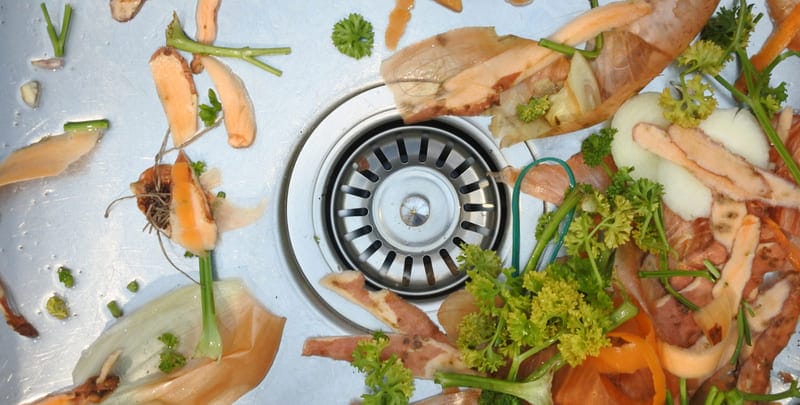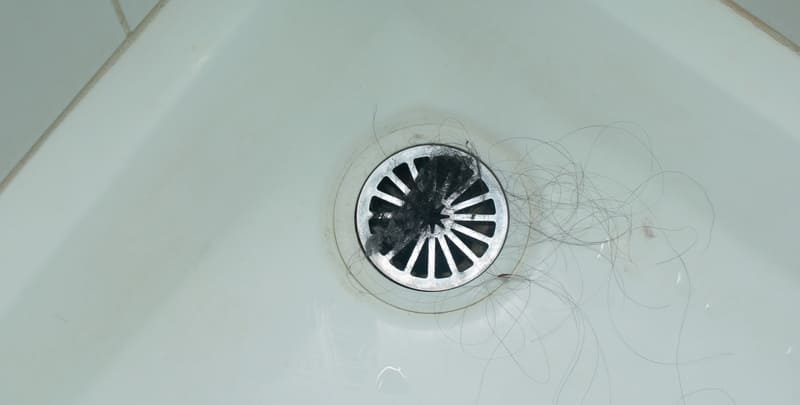Do Blocked Drains Attract Pests?

Blocked drains are a common headache for many Australian homeowners, often leading to more than just water backing up in your sink or shower. This seemingly minor inconvenience can quickly escalate into a major issue, attracting unwanted pests to your home due to the accumulation of food debris, grease, and other organic matter.
Understanding the link between clogged drains and pest infestations is crucial in maintaining a hygienic and comfortable living environment. Let’s explore how a blocked sink drain can become a magnet for pests and provide practical advice on how to tackle this issue, keeping your home pest-free and your drains flowing smoothly.
The Connection Between Blocked Drains and Pests
Blocked drains serve as a beacon for pests and create unwelcome issues for homeowners across Australia. These clogs, rich in food scraps, grease, and other organic waste matter, provide the perfect conditions for pests like cockroaches, flies, and rodents. They’re drawn to the moisture in a blocked drain as well as the potential food sources lurking within. Such infestations not only pose a nuisance but also elevate health risks through potential disease transmission and food contamination.
In addition, the resultant dampness in your blocked drain can foster mould growth, further enticing a broader array of pests. Recognising the link between drain blockages and pest infestation is crucial for homeowners aiming to safeguard their living spaces from these unwelcome invaders.
Common Causes of A Clogged Drain
A common gripe in Australian households, the blocked drain is typically the result of general everyday activities. The usual culprits include:
- Food waste that sneaks down the kitchen sink.
- Stubborn grease that solidifies within the pipes.
- Hair that binds with soap scum in the shower drain, effectively creating a blockage.
Additionally, the flushing of sanitary products and wet wipes, despite many being labelled as ‘flushable’, contributes significantly to blocked drains. Even small items like food residue, coffee grounds, and other debris can accumulate over time, leading to severe blockages. Understanding the common causes of drain blockages can help homeowners take proactive steps to maintain clear drains and prevent disruptive clogs now and into the future.
The Role of Food Debris in Attracting Pests
The accumulation of food scraps in our drains plays a pivotal role in attracting pests into our homes. Bits of food that escape down the kitchen sink drain hole, or get trapped in the U-shaped pipe beneath become a banquet for pests like cockroaches, ants, and rodents. These scraps provide not only a source of nourishment but also a hospitable environment for pests to thrive and multiply.
The issue worsens when food particles mix with other organic matter, creating an even more appealing scent for these unwelcome guests. Homeowners should be vigilant in preventing food waste from entering their drains to mitigate the risk of pest infestations, ensuring a cleaner, healthier home environment.

DIY Solutions To Clear A Blocked Drain
For homeowners looking for effective home remedies for clearing blocked drains, several DIY solutions can offer effective relief without the immediate need for professional intervention.
A popular method of unblocking drains involves pouring boiling water down the drain to dissolve grease and soap build-up. For tougher clogs that require more than hot water, a homemade drain cleaner mixture of baking soda followed by vinegar might get the job done. It creates a fizzing action that helps dislodge a drain blockage and get your blocked drain to flow freely once again. Another handy tool to clear blocked drains is the humble wire coat hanger. Straighten it out and fashion it into a DIY drain snake to remove debris.
These simple yet effective techniques can clear minor blockages, keeping your drains flowing smoothly and preventing potential pest attractions. Regular use of these methods, from baking soda and vinegar to hot water and wire hanger DIY drain snakes, can contribute significantly to maintaining a healthy drainage system in your home. One that is free of blocked sinks and water drains.
When to Use Chemical Drain Cleaners
While DIY drain cleaner solutions often suffice for minor blockages, certain stubborn clogs may require the use of chemical-based caustic cleaners.
However, caution is advised.
These potent solutions should be a last resort on your blocked drain. Use them sparingly to avoid damaging your plumbing system or harming the environment. Ideally, you should only use chemical cleaners when natural remedies like boiling water fail to dislodge the blockage, or when the obstruction is beyond the reach of physical tools like a drain auger. Always follow the manufacturer’s instructions carefully to ensure safety and effectiveness.
Remember, regular maintenance and mindful disposal habits of foreign objects and fatty substances are key to minimising the need for such harsh measures.
The Importance of Professional Drain Maintenance
Regular professional maintenance is crucial for keeping the prevent blockages of your drainage system. A certified professional plumber can conduct thorough inspections and cleanings, preventing minor issues from escalating into major blockages or severe pest infestations.
Licensed professionals have access to advanced tools like high-pressure water jets or specialised drain snake that can effectively clear stubborn blockages, address tree root intrusion problems, or deal with accumulated debris. Investing in routine professional maintenance not only ensures your drains remain clear but also helps avoid costly repairs down the line. It’s a proactive approach to safeguarding your home’s plumbing system and overall hygiene.
Advanced Solutions for Clearing Blocked Drains
For severe blockages that defy standard clearing methods, Australian homeowners may need to resort to more advanced solutions. Professional plumbers can employ sophisticated techniques such as hydro-jetting, which uses high-pressure water streams to blast away stubborn clogs, tree roots and residue lining the pipe walls. Another effective method is pipe relining, which can repair a broken pipe without the need for extensive excavation, offering a less invasive and more cost-effective solution.
These advanced techniques are useful in addressing the immediate drain blockage. They also contribute to the long-term health and efficiency of your home’s plumbing system, ensuring drains remain clear and functional.

Essential Measures to Prevent Drain Blockages
To keep prevent blocked drains in the future, homeowners can adopt several preventative measures.
- Installing strainers in the kitchen or bathroom sink, and the shower, can catch hair, food scraps, and other debris before they make their way down the drain hole.
- Don’t pour grease, oil, and food waste down the kitchen sink. Dispose of them in the bin instead.
- Regularly flush indoor and outdoor drains with boiling water or a mixture of baking soda and vinegar to break down potential build-ups.
- For bathrooms, minimise the use of bath oils and soap that can leave residue.
- Ensure you only flush toilet paper down the loo, as even ‘flushable’ wipes can result in a blocked toilet.
Adopting these simple habits can significantly reduce the risk of a blocked drain, as well as the need for costly repairs.
Keeping Your Drains Clear and Pest-Free
It’s clear that blocked drains are more than just an inconvenience; they can lead to pest infestations and significant plumbing issues in homes across Australia. By recognising the signs of drain blockages and understanding the causes and consequences of a blocked drain, homeowners can take proactive steps to prevent them.
Whether it’s through simple DIY solutions like hot water or a DIY drain snake, mindful disposal practices, or seeking professional maintenance, keeping your drains clear is essential for a healthy, pest-free home.
Remember, regular care and prevention are key to ensuring your plumbing system remains efficient, saving you from the hassle and expense of dealing with severe blockages or unwanted pests.
Please note: This information is provided for advice purposes only. Regulations differ from state to state, so please consult your local authorities or an industry professional before proceeding with any work. See After Hours Plumbing’s Terms & Conditions here.
